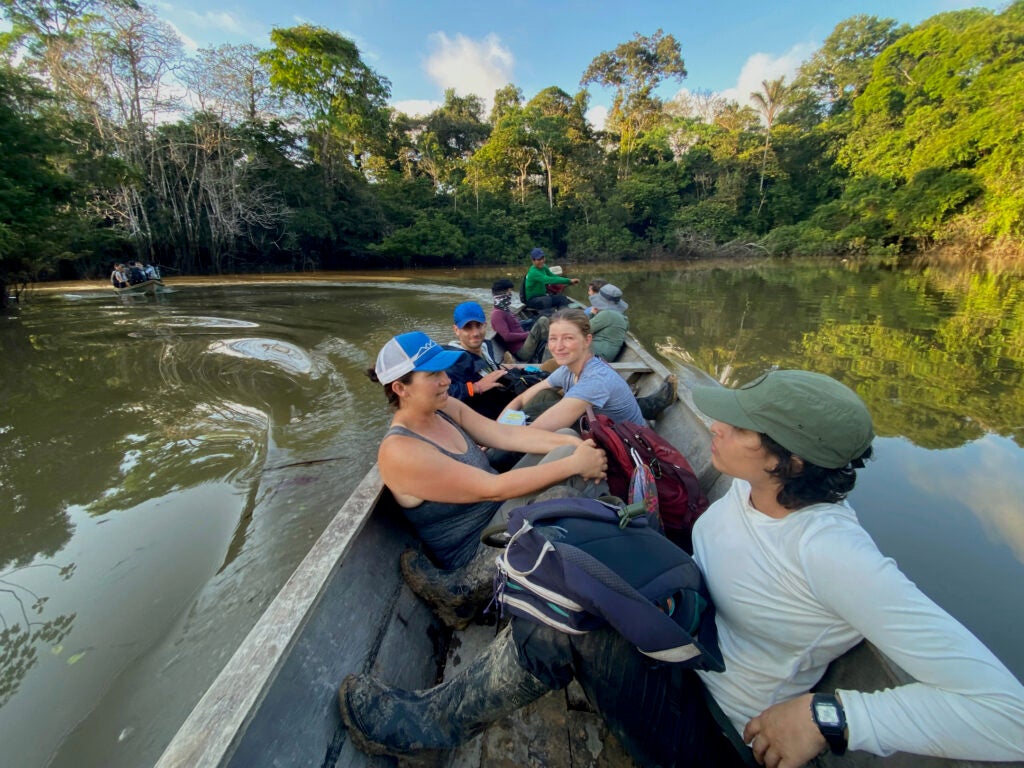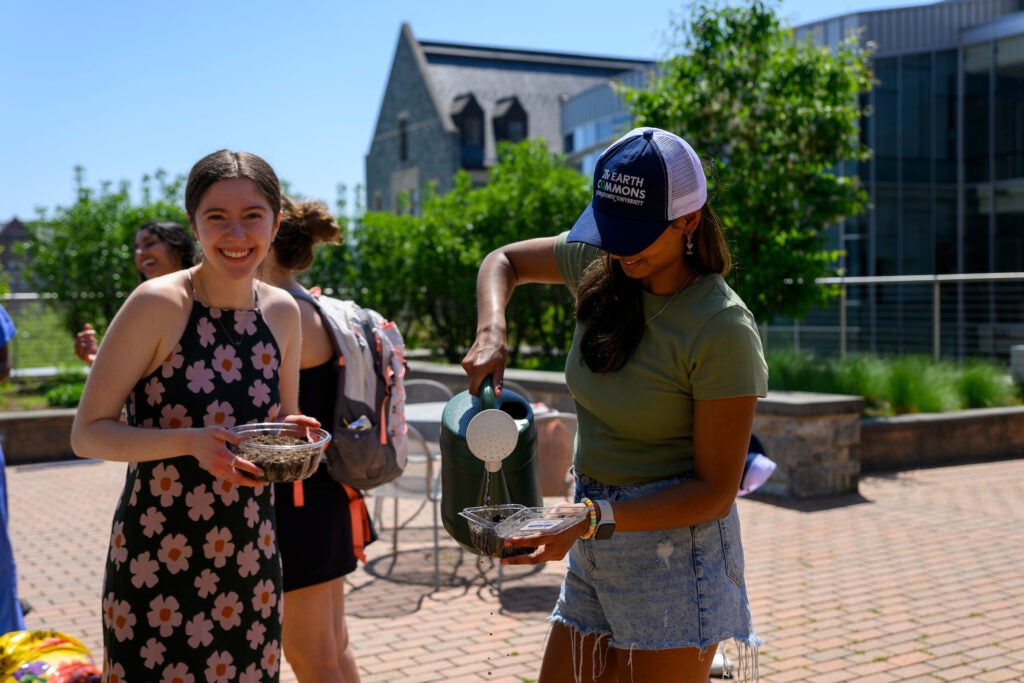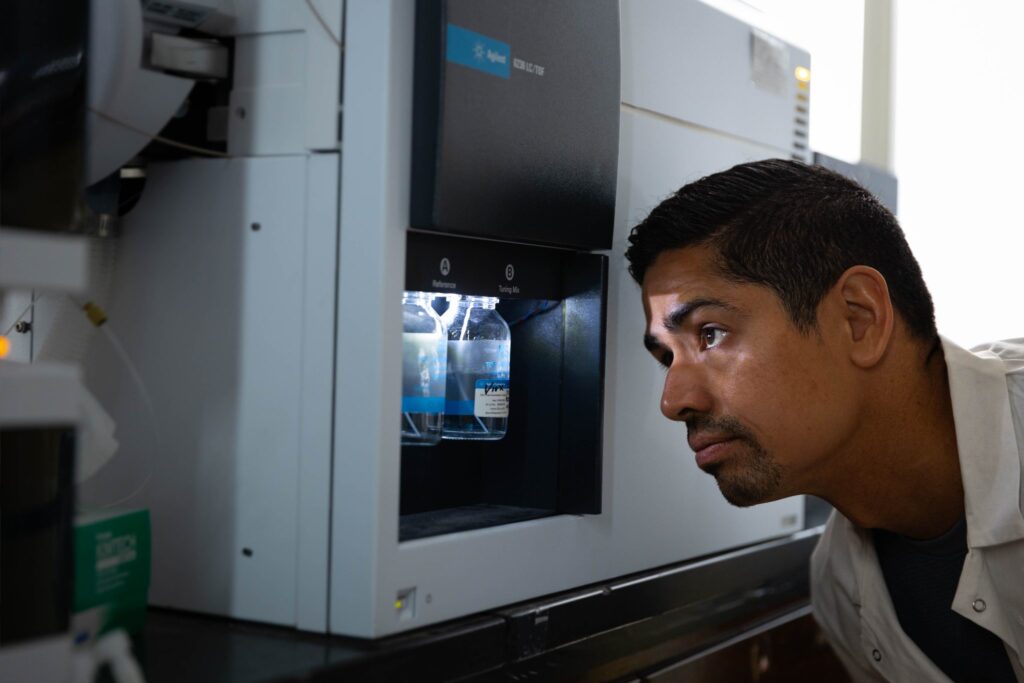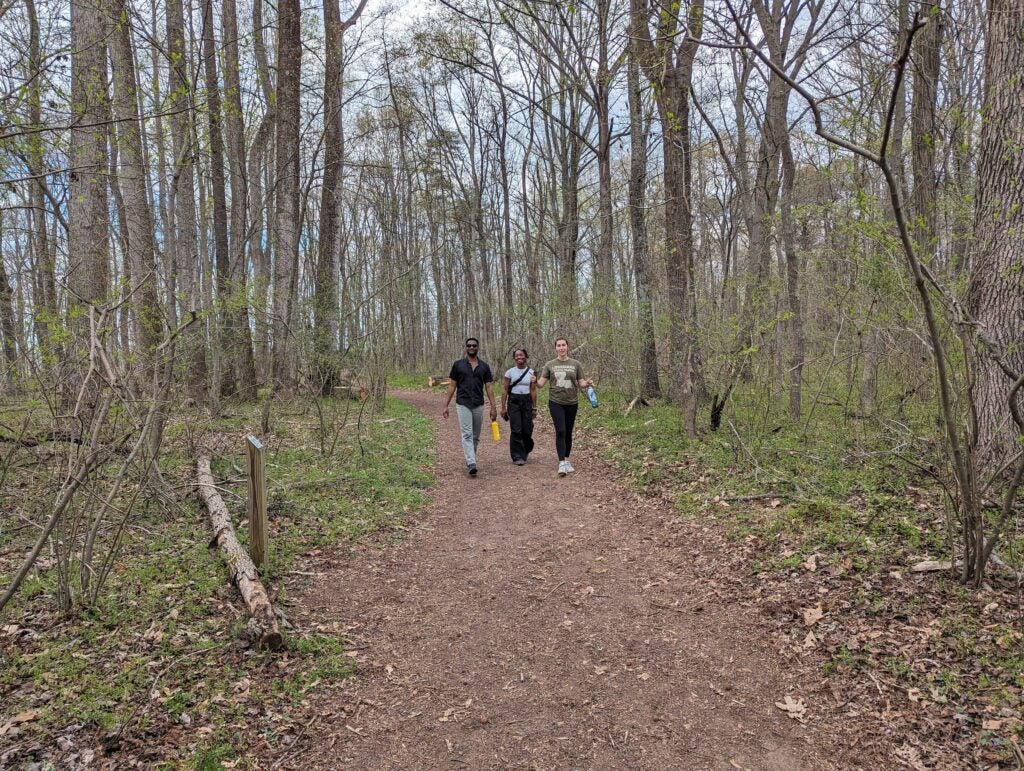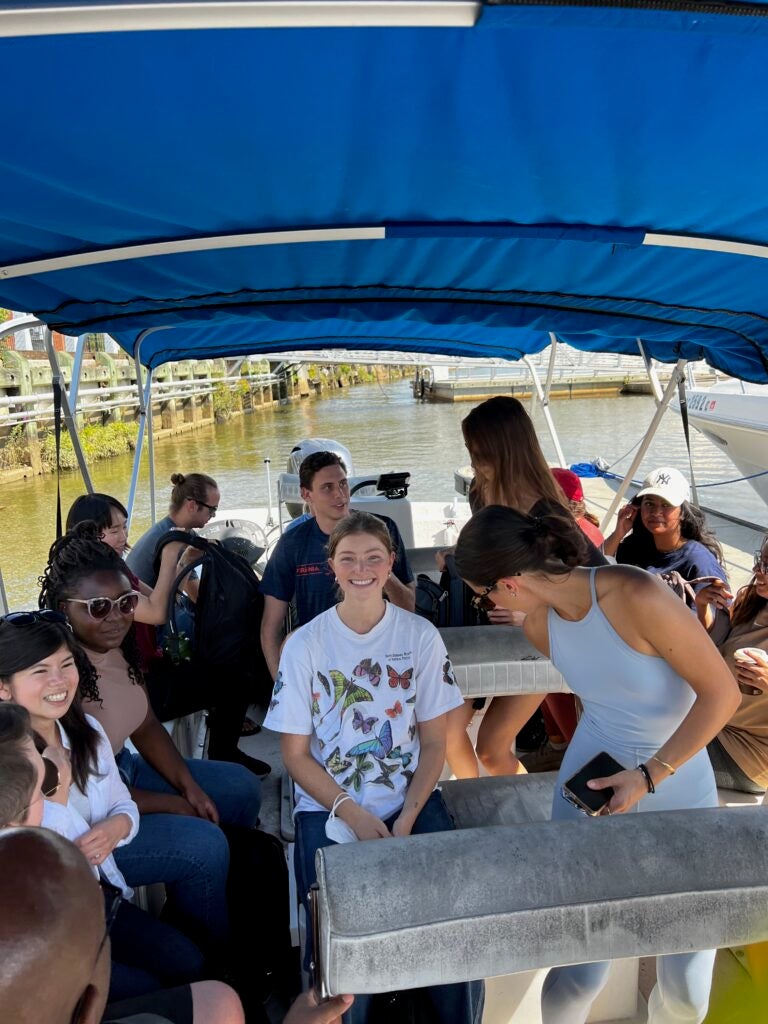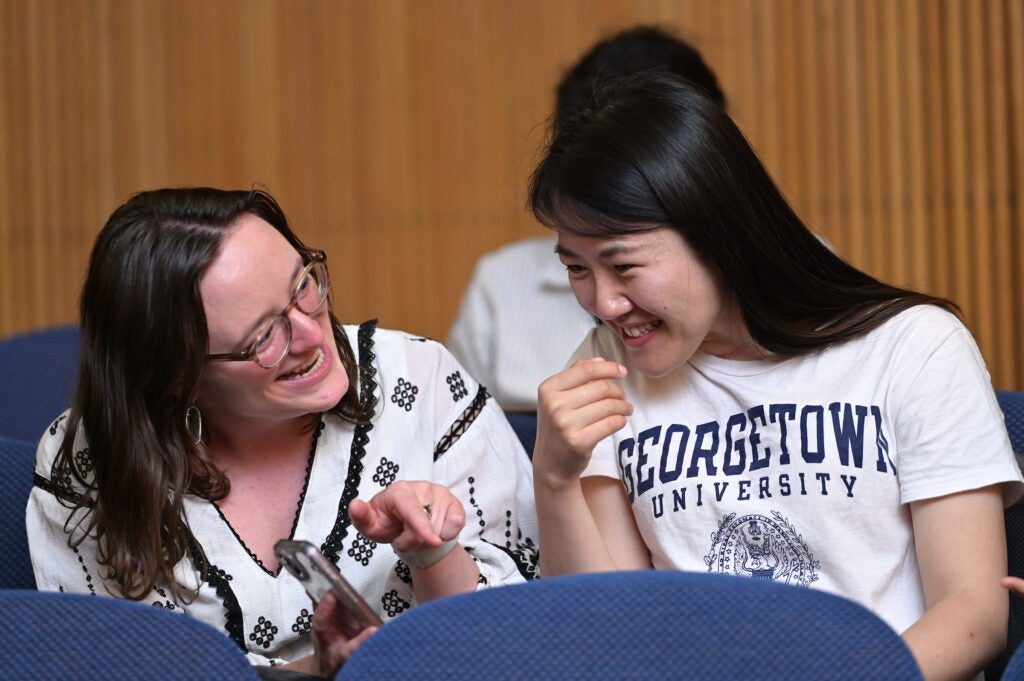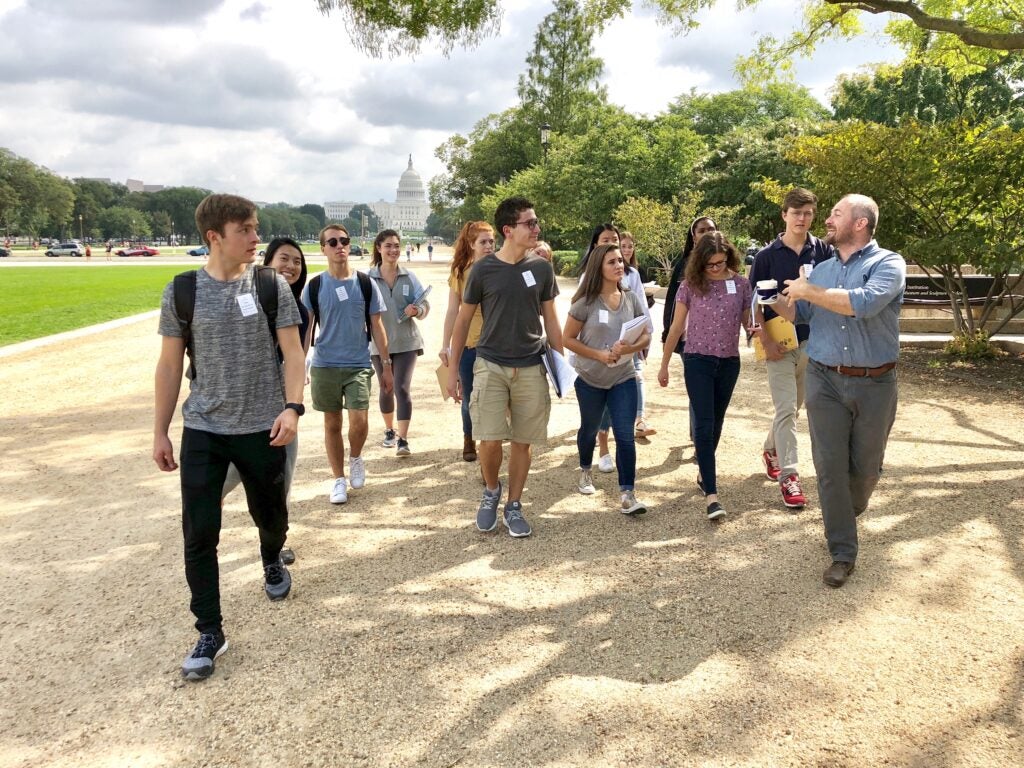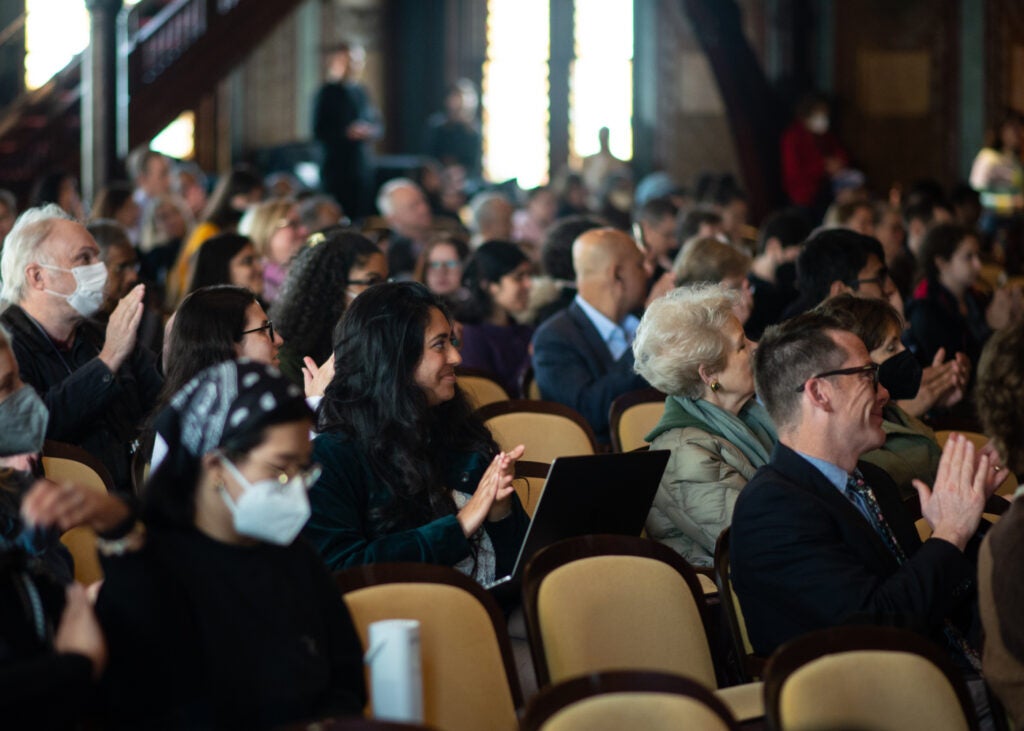Discover your path to environmental leadership
With the BS in Environment & Sustainability from Georgetown’s College of Arts & Sciences and The Earth Commons, you gain knowledge, experience and skills in the classroom, in the field, and around the world—and bring it all together to make a positive impact.
About